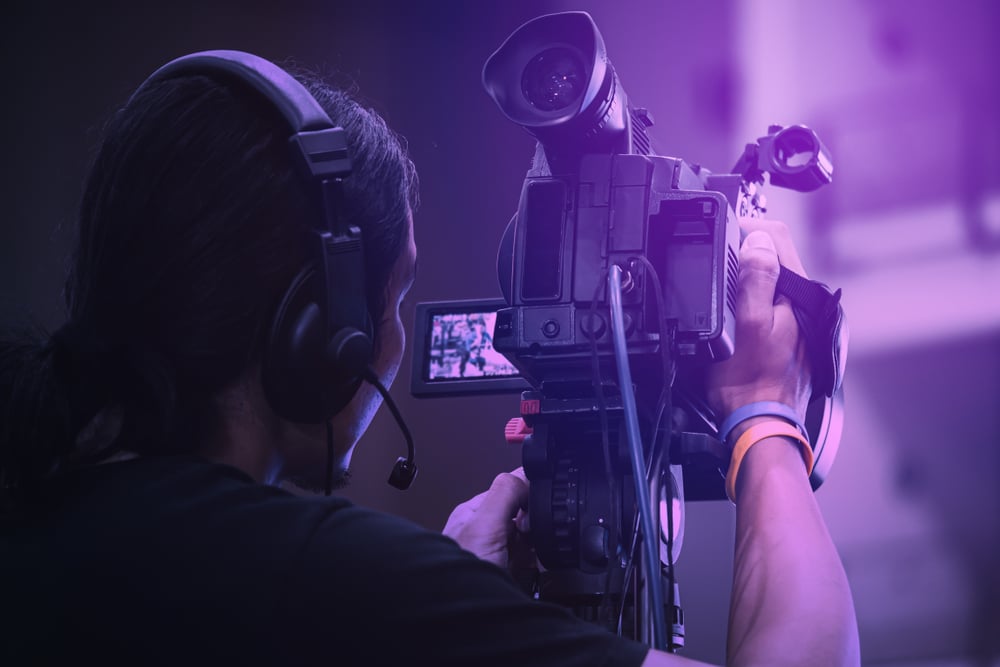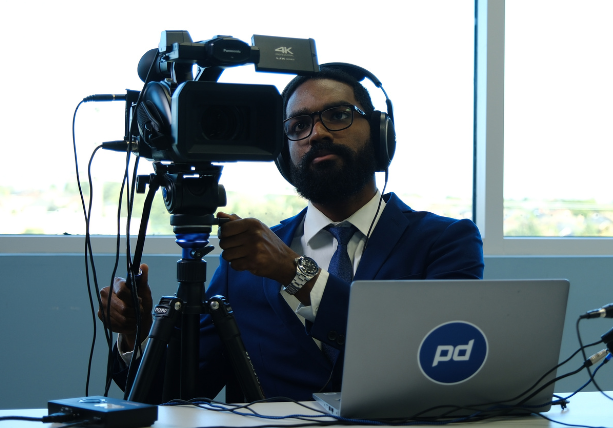The Importance of Lawful Video Clip Depositions in Modern Legal Solutions: What You Need to Know
Legal video depositions have ended up being essential in today's lawful landscape. They offer a multidimensional view of witness testimonies that traditional records simply can not match. By catching both non-verbal and spoken interaction, these depositions enhance the total understanding of a witness's integrity. The efficiency of video clip depositions hinges on various factors, including compliance with legal criteria and finest methods. Exploring these aspects reveals their true value in contemporary lawful services
What Are Lawful Video Clip Depositions?
Lawful video depositions act as a crucial device in the lawsuits procedure. They include videotaping witness testimonies in a video format, catching both non-verbal and verbal interaction. This approach permits attorneys to document the disposition, expressions, and reactions of witnesses, providing a richer context for the statement. Generally conducted in a regulated atmosphere, these depositions are led by lawyers who ask inquiries while a court press reporter documents the discussion. The resulting video clip can be essential for trial preparation, as it makes it possible for attorneys to evaluate the integrity of witnesses and improve their methods. In addition, legal video depositions can be made use of in various lawful contexts, ranging from civil disputes to criminal instances. The visual and auditory elements of video depositions boost the discussion of proof, making it a necessary component in the modern-day legal landscape. Generally, they contribute significantly to the performance and performance of lawful process.

Advantages of Video Clip Depositions Over Standard Techniques
Video depositions supply numerous advantages compared to conventional approaches of taking witness testimonies. One significant advantage is the capability to record both audio and visual elements, supplying a more thorough document of the witness's statements. This double format boosts clarity and enables lawyers to reference certain nuances throughout test prep work. In addition, video clip depositions promote remote involvement, making it much easier for witnesses who might be unavailable for in-person appearances because of geographical restrictions or health issues.Moreover, video depositions can accelerate the overall deposition procedure, lowering the moment and expenses related to travel and logistics. They also enhance availability, as videotaped depositions can be quickly shared amongst legal teams and referenced any time. This ease contributes to better situation monitoring and prep work. Overall, video depositions stand for a contemporary, effective technique to collecting witness testimonies, aligning with the progressing needs of the legal career.
The Role of Body Language and Tone in Testimonies

In legal video clip depositions, body movement and tone play crucial duties in communicating a witness's credibility and dependability. Nonverbal hints can supply understandings right into a witness's emotional state, affecting how their statement is viewed. Comprehending the effect of these components is vital for jurors and lawyers alike when examining the reliability of a testimony.
Nonverbal Communication Insights
While spoken interaction is usually emphasized in legal testimonies, nonverbal signs such as body movement and tone play an important role in communicating reliability and emotion. Observers of depositions may note that a witness's position, motions, and face expressions can substantially influence understandings of reliability. As an example, constant eye call may indicate confidence, while preventing gaze can recommend deceit or discomfort. The tone of voice-- its quantity, pitch, and speed-- can give sensations of sincerity or unpredictability. Lawyers have to be in harmony with these nonverbal signals, as they frequently supply crucial context that complements talked words. Comprehending these subtleties can enhance the performance of depositions and affect the result of lawful process.
Psychological Tone Impact
The emotional tone communicated throughout lawful testimonies considerably impacts how a witness is viewed. Body language, singing inflections, and facial expressions play essential roles in shaping the narrative of a testimony. A witness displaying confidence via stable eye call and a tranquil tone can instill a sense of reliability and interaction. Conversely, indicators of anxiety, such as fidgeting or a shaky voice, may lead to suspicion regarding their account. The nuances of psychological expression can affect the interpretation of truths, making it important for lawful specialists to identify these hints. In video clip depositions, the auditory and visual elements combine, stressing the significance of psychological tone in communicating genuineness and truthfulness within the legal procedure.
Trustworthiness and Trustworthiness
An essential aspect in developing credibility and credibility throughout testaments exists in the witness's body movement and tone of voice. Onlookers usually count on non-verbal cues-- such as eye call, stance, and motions-- to assess a witness's genuineness. A witness that maintains eye get in touch with and displays open body language might be viewed as more dependable and honest than one who prevents eye call or appears closed off. In addition, intonation plays an important role; a stable, tranquil tone can strengthen the credibility of the statement, while variations in pitch or quantity may increase uncertainties. Ultimately, the combination of body language and vocal tone greatly influences how a witness's statements are received and translated in a legal context.
Ideal Practices for Conducting Video Depositions
Conducting video clip depositions requires cautious planning and implementation to guarantee a reliable and clear presentation of testament. Initially, it is crucial to choose a quiet, well-lit location to reduce disturbances and secure ideal video clip top quality. The equipment must be evaluated beforehand, including cams, microphones, and lighting, to avoid technological problems throughout the deposition.Next, parties included need to review the format and treatments ahead of time, ensuring that everyone recognizes their roles. The deponent must be informed on the process, consisting of exactly how to respond clearly and concisely.Additionally, preserving an expert temperament throughout the session is important. This includes abstaining from talking over each other and confirming that all inquiries are directed suitably. It is important to tape-record the deposition in a style that permits for very easy playback and evaluation, preserving the integrity of the testament for future usage.
Lawful Considerations and Compliance Issues
How look at here do lawful factors to consider and compliance problems affect the efficiency of video depositions? Lawyers should navigate a complicated landscape of policies, guaranteeing that video clip depositions abide by jurisdictional regulations and requirements. Conformity with regulations concerning personal privacy, consent, and recording methods is essential. Getting explicit approval from all parties involved is essential to prevent lawful repercussions.Additionally, the admissibility of video clip proof in court can hinge on compliance with step-by-step needs. Guaranteeing that the equipment used satisfies technical standards is also vital, as low quality can undermine the deposition's reliability.Moreover, attorneys should know any type of certain state regulations that control video depositions, as these can vary greatly. Failure to attend to these considerations can not just jeopardize the honesty of the deposition yet additionally influence the total instance technique, ultimately affecting the client's lawful end results.
How Video Depositions Influence Jury Assumption
While video depositions can act as effective devices in lawful procedures, their influence on jury assumption is substantial. The aesthetic and auditory elements of video clip recordings give jurors with a more complete understanding of witness disposition, integrity, and emotional responses. This multimedia strategy can boost the jurors' ability to examine the integrity of testimony contrasted to standard text-based transcripts.Moreover, video clip depositions allow jurors to observe body movement, intonation, and faces, all of which can influence their interpretation of the witness's declarations. The existence of a witness on screen can humanize them, fostering empathy and link, which may guide jurors' viewpoints. On the other hand, a witness that appears evasive or untrustworthy on video might cause unfavorable perceptions that affect a court's choice. Eventually, the vibrant nature of video depositions plays an important function in forming just how jurors interpret evidence and reach their judgments.
The Future of Video Clip Depositions in Legal Practice
As advancements in technology remain to improve the lawful landscape, the future of video depositions is positioned for significant advancement. Innovations such as synthetic intelligence, digital reality, and improved video conferencing devices are anticipated to simplify the deposition process and improve accessibility. Lawful experts might try this out utilize AI-driven analytics to examine witness integrity and situation toughness more effectively.Moreover, the combination of digital fact can allow courts to experience immersive simulations of depositions, giving deeper context and understanding. In addition, the trend towards remote depositions is likely to persist, providing higher versatility for clients and attorneys alike.As remote job comes to be increasingly normalized, video clip depositions will likely come to be standard technique, minimizing expenses and time constraints connected with conventional techniques. In general, these technological developments promise to improve the efficiency, effectiveness, and access of video depositions in lawful technique, eventually changing how attorneys prepare for trial.
Regularly Asked Inquiries
Just How Much Do Legal Video Depositions Typically Cost?

Can Video Depositions Be Utilized in Any Kind Of Situation?
Video clip depositions can be utilized in different sorts of instances, consisting of civil, criminal, and household regulation. Their versatility enables lawyers to existing witness testimonies efficiently, adapting to the certain needs of various more information lawful scenarios.
What Devices Is Required for a Video Clip Deposition?
To carry out a video clip deposition, crucial tools consists of a top quality camera, microphone, lights, and a trustworthy recording gadget. In addition, a computer system with modifying software program might be required for post-production and formatting the last video clip.
For how long Does a Normal Video Clip Deposition Last?
A normal video deposition lasts between two to 4 hours, depending upon the intricacy of the case and the number of inquiries posed. Extended sessions may take place, yet breaks are generally incorporated for participant comfort.

Are Video Clip Depositions Admissible in Court?
Video clip depositions are generally permissible in court, given they abide by lawful criteria and rules of proof. Their use boosts quality and maintains witness statement, assisting in the judicial process throughout hearings and tests. Legal video depositions have come to be necessary in today's legal landscape. Furthermore, lawful video depositions can be made use of in numerous lawful contexts, varying from civil conflicts to criminal instances. Furthermore, video clip depositions assist in remote engagement, making it easier for witnesses that may be inaccessible for in-person appearances due to geographical constraints or health and wellness issues.Moreover, video clip depositions can accelerate the general deposition process, reducing the time and prices connected with travel and logistics. Guaranteeing that the tools used fulfills technological standards is likewise important, as inadequate quality can undermine the deposition's reliability.Moreover, lawyers must be conscious of any kind of particular state regulations that control video clip depositions, as these can differ significantly. Furthermore, the fad towards remote depositions is likely to linger, using greater adaptability for attorneys and clients alike.As remote job ends up being increasingly normalized, video depositions will likely end up being conventional method, decreasing prices and time constraints associated with traditional approaches.
Comments on “Why legal video depositions are critical in hybrid litigation settings”